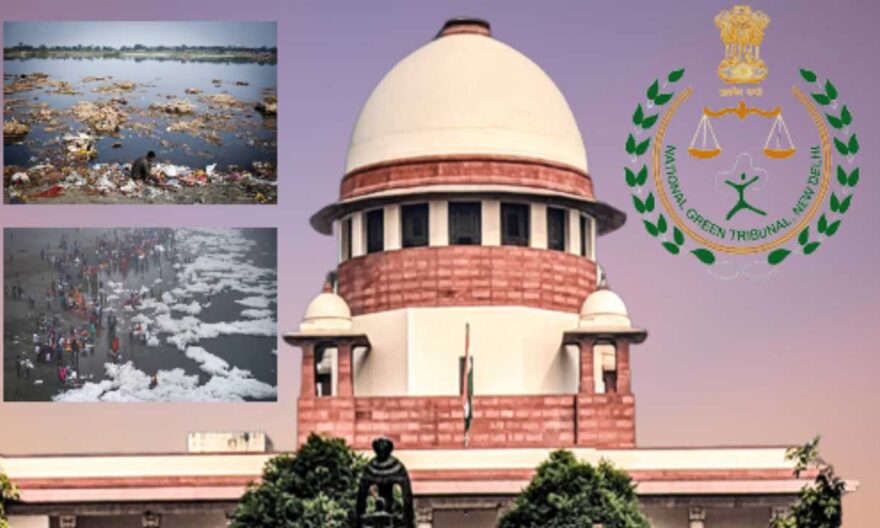
The Supreme Court on Tuesday stayed the direction of the National Green Tribunal (NGT) appointing the Lt. Governor of Delhi as the head of the High-Level Committee for Yamuna river pollution.
A bench comprising Chief Justice DY Chandrachud, Justice PS Narasimha, and Justice Manoj Misra heard the matter.
Senior Advocate Dr. AM Singhvi, representing the GNCTD argued that such power should not be given to an LG, let alone a Governor. He contended that a domain expert should head the committee.
Justice Narasimha commented that it was a matter of propriety, and the Chief Justice added that an expert could have been appointed as per the argument.
Dr. Singhvi affirmed, and the bench issued notice in the case.
CJI DY Chandrachud clarified that the stay was limited to the NGT’s direction appointing the LG as the head and not the entire order.
“There shall be a stay of the operation on direction of NGT to the extent that the LG has been asked to be the head. We are not staying the entire order,” CJI stated.
The appeal was filed through Advocate Shadan Farasat under Section 22 of the NGT Act, contending that the appointment of the LG as the head of the high-level committee, as stated in the order, is unconstitutional.
“The executive power for matters relating to local governance lies exclusively with the State Government (GNCTD) under the Constitution, except to the extent limited by an express Parliamentary law,” the plea stated.
Referring to Article 239AA of the Constitution, the Delhi Government contended that “LG is only a nominal figurehead except in areas of police, order and land where he exercises his powers in lieu of the power designated by the Constitution.”
The plea also cited the case of State (NCT of Delhi) v. Union of India (2018) 8 SCC 501, in which the Supreme Court ruled that the elected government of the NCT of Delhi holds exclusive executive powers over all subjects in the State and Concurrent List, with the exception of ‘public order’, ‘police’, and ‘land’.
The plea highlighted that remedial measures for solid waste management do not fall within these excepted subjects mentioned in the ruling.




